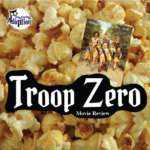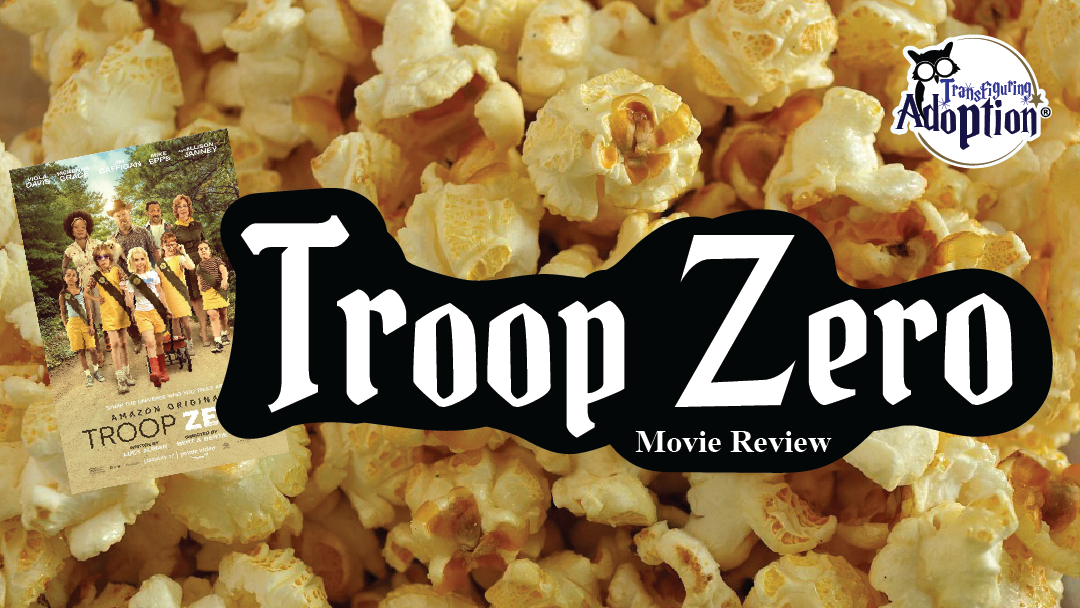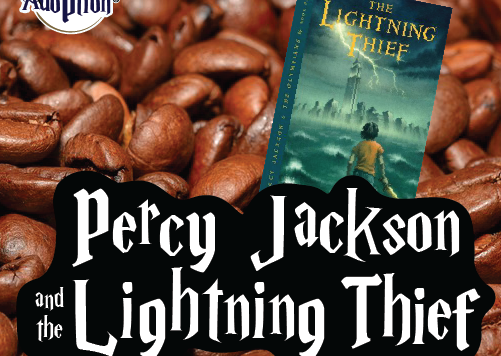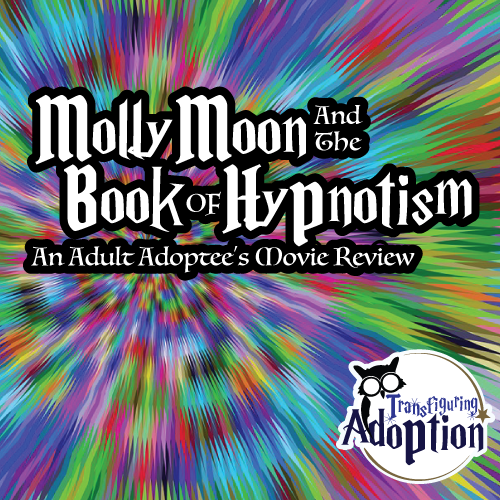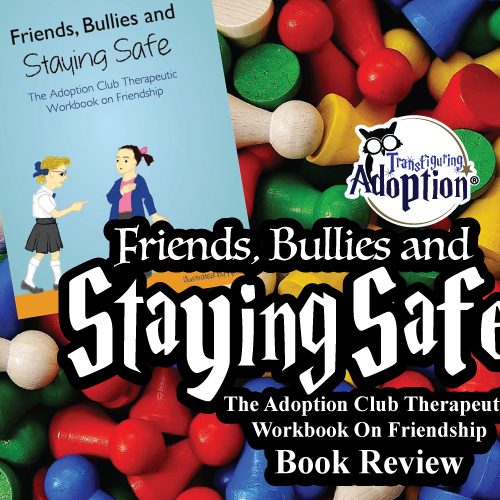This film was created for the general viewing public with a rating that is friendly for most families. The youngest age that this movie would attract before losing interest would likely be around the age of 8 years, or upper elementary school. There is some language in the film, and it does explore some deep concepts, such as processing the death of a parent and being rejected by peers.
The movie which is set in Wiggly, Georgia, in the late 1970s, follows a girl named Christmas who wants to win a Birdie Scouts competition so that she can utilize the grand prize of recording a message that will be played out into outer space with the hopes that her late mother will hear it. Christmas and her friend, Joseph, who Christmas refers to as a “girl-boy,” put together a troop of Birdie Scouts to enter the talent competition. This band of perceived misfits is made up of Christmas, Joseph, two girls—named Hell-No and Smash who seem to keep other people at bay through aggressive behavior—and finally there is Anne-Clair, who is girl with one eye and “a big passion for Jesus.” The children are all seen as misfits by their peers and many peers’ parents. The story finds the children figuring out how to work together and learn their own talents amidst a great sea of bullies and scoffers who want them to quit.
Overall, as a movie which was created for the consumption of the general public, it has the right amount of awkward humor and childish optimism/bravery against serious issues that need to be tackled to get the movie to the finale. For children who have experienced trauma or who have been fostered or adopted, this movie contains many trauma triggers and may not be good to view. However, if a child can handle being triggered in the presence of a safe adult, this movie provides excellent conversation starters and quotes. We strongly recommend you view this movie ahead of your child or become very familiar with the triggers first so you may make an informed decision of whether your child should see this film. Then, be present and ready to talk and have ongoing conversations if your child and you watch the movie.
** Spoilers Could Be Ahead **
How Is This Relevant To Adoption & Foster Care?
This movie does not directly make a connection to foster care or adoption. The main character, Christmas, lives with her widowed father. Comments made throughout the film seem to allude to the other children not all having positive parental figures or role models in their lives. While the content of the movie is not directly about foster care or adoption, there are plenty of themes that will speak to a foster and adoptive audience. Many of these themes will be explored in the discussion points below and have to do with issues related to identity and bullying.
One of the adult female characters, Ms. Rayleen, works for Christmas’ father out of their home office. Ms. Rayleen begrudgingly takes the assignment to be the Birdie Scout mother for the group of underdogs. Foster and adoptive parents might be able to relate to this character as leading the Birdie Scout group forces her to confront issues and regrets from her own past.
A scene that spoke to this adoptive parent was one in which Ms. Rayleen and Christmas were sitting across the table from each other while the other children were running wild in the background. Ms. Rayleen spoke her doubts about the troop’s ability to secure the necessary one patch each to go to the competition. Christmas stares into Ms. Rayleen’s eyes and states, “This ain’t us. This is some candy ass, B-grade version of us because we ain’t got no one to show us better. Be that for us.”
Discussion Points:
- Choosing Who You Listen To
Frequently in this film, the main character is told discouraging words about herself and is advised to give up her dreams. Even adults can be seen expressing that Christmas is a misfit, “leftover,” and “not good enough.” Christmas seemingly keeps a positive attitude in the face of being verbally abused. However, throughout the abuse her positive attitude doesn’t appear to be beat down, and she always keeps her sight on her goal. She just smiles and keeps trying her best. One scene that demonstrates this and which surprised this reviewer was after a group of girls verbally taunted Christmas and then cut her hair and shoved her in a locker. When her friend, Joseph, gets her out of the locker, she seems unwavering about her goal to win the Birdie Scout Competition. Joseph helps Christmas fix the hack job to her hair, and the two move on scheming without giving hardly a thought to the taunts and teasing that were administered to them both a short while before. While Christmas DOES seek the advice and counsel of her father and other trusted adults, she really only seems to listen to Ms. Rayleen and her father, who are the almost the only two people who seem to really have her best interests at heart. - Words Hurt
This film has no shortage of verbal abuse. At one point, when Christmas asks a girl why she is so mean, the girl declares, “It just feels right. I’m at the top, and you’re at the bottom. It’s just how it is.” After watching this film, it would give a parent the opportunity to discuss how everyone in the family thinks various actions or phrases affected various characters. It would be good for parents to point out facial expressions and body language. Children from traumatic backgrounds may not be able to associate nonverbal body language with various feelings. It is a good exercise for everyone in the family to see how words are affecting the characters but also good practice for children in gaining the knowledge to recognize their own nonverbal body language. - Missing a Parent
Throughout the film Christmas talks about her mother who has passed away some time ago. Her memories of her mother are important as the whole premise of the movie is so that she can send a recorded message into space that her mother might hear. However, only at the end do we see Christmas and her father talking about her mother. Christmas even makes a comment that she didn’t think she was supposed to talk about her mother anymore. Her dad assures her that she can and should talk about her. Children who have been through foster care or adopted are almost certainly carrying around questions and thoughts of their birth parents with them everyday. As caregivers, it is important for us to frequently affirm that they should feel free to talk about their birth parents and family. This movie could be used to bring up this topic and affirmation.
Cautionary Points:
- Bullying
Children from traumatic places can often be the victims of bullying because of “socially awkward” behaviors. The children in this movie were very much seen as misfits or outcasts. The movie continually portrays them having to endure bullying from other children. Some scenes of bullying include some of the children being chased up a tree to seek asylum, public humiliation in front of peers, having one’s hair sheered in a non-flattering manner while getting shoved into a locker. When the principal discovers the situation of Christmas being shoved in a locker, the principal blames Christmas for allowing this event to occur, and the other children are not held accountable for their actions. There were other situations in the movie where adults witnessed the bullying and either encouraged the behavior or opted to not step in and protect the victims. This could be triggering for children who have been bullied at school or who have endured abuse in their past. - Public Embarrassment
During the movie many of the children make fun of the main character, Christmas, because she wets the bed. Christmas denies this action and the audience is kept guessing through most of the movie as to whether this accusation is actually true, or if it simply another way for children to heap more abuse on this child. However, during the ending scenes (SPOILER ALERT) Christmas becomes so anxious and embarrassed that she pees her pants in front of the whole assembly of Birdie Scouts during the big competition. Christmas is naturally made fun of, and none of the adults in attendance at the competition come to her rescue. While everything works itself out through the story, viewers will have to stomach this very difficult scene to get to happier moments. Children from traumatic backgrounds may have issues wetting the bed or wetting themselves during the day due to the trauma or neglect they have experienced in the past. If your child has or has had these issues in the past, it would be good to know how much it affects them as they are going to be confronted with this situation in this movie. - Adult Neglect
As has been mentioned in this review, adults are not absent throughout the verbal and physical abuse in this story. Even Ms. Rayleen and Christmas’ father can be seen at times neglecting to step in and defend the children from verbal abuse and at times give the children a little too much freedom to figure out life on their own. While I could continue to discuss various moments where other adults seemingly use negative language to attack the children of Troop Zero (I mean the principal even allowed the troop to be outfitted with the number zero), I will share a scene where the adults might have given the children a bit too much freedom. The troop needed a patch for spending the night in the woods. Ms. Rayleen leads the troop to a forbidden part of a wooded area and leaves them at a spot to camp by themselves at night. The girls were not informed that they would be alone for the night, and Ms. Rayleen seems to rush away once she finds a spot for the children to camp. I will say that the following morning the film makes it appear as though she might have had a close eye on them from far away (maybe not), but the girls were forced to spend the evening with the understanding that they had been abandoned. Children from traumatic places have often not had safe adults they can rely on to make sure they are safe and secure. Scenes where the adults do not step in to stop abuse, participate in bullying, or leave the children to fend for themselves could be trauma triggering, especially for children who suffered severe neglect in their past. Depending on the trauma and impact a child continues to experience, it might be wise for a caregiver to assure a child that, while the writer was telling a story, that you, the caregiver, would not do this to your child.
[Donate to this Project]
About the Author: Darren Fink
Co-founder and Program Director of Transfiguring Adoption. Darren is a graduate of Illinois State University where he studied fine art. He offers foster and adoptive parents over a decade of experience in parenting foster and adoptive children, as well as his introductory to counseling training.
Darren enjoys visiting amusement parks with his family.
**Transfiguring Adoption is a nonprofit organization seeking to nurture growth in foster and adoptive families by giving a HOOT about their families. Transfiguring Adoption does not intend for its reviewers nor its review to be professional, medical or legal advice. These reviews and discussion guides are intended to help parents to better be able to connect and understand their children who come from traumatic backgrounds.
